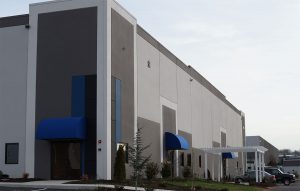The food and beverage industry is responsible for 17% of total manufacturing shipments, and 2% of the national Gross Domestic Product.
If you need food grade logistics solutions for your company, you might want to consider hiring a third party logistics facility (also referred to as a 3PL).
The benefits and advantages of outsourcing supply chain management are numerous. The following are just a few of them:
- You Become an Instant Logistics Expert
The biggest advantage of using a 3PL is that they’re experts at distribution and logistics. If they’re a reputable, competent company, then their staff are among the best in the industry. This kind of expertise is a bragging right that most companies simply don’t have.
You may be the best at inventing a specific type of food product, but it’s hard for one business to be competent at everything. So what better way to manage logistics and distribution than by outsourcing it to a company that specialises in that?

- You Get to Manage International Logistics Easily
If you sell products internationally, a 3PL will take care of all the documentation and issues that come up when dealing with customs and border control. This saves you from having to figure out complex distribution laws in foreign countries, and spares you the expense that can come with handling these kinds of problems inefficiently.
- You Constantly Improve Your Supply Chain
Because you’re outsourcing to a food grade logistics facility, your supply chain will be evaluated, optimised, and improved constantly—without your having to lift a finger.
For these reasons and more, it’s a good idea to invest in a third party logistics facility for your food grade logistics and distribution needs.
Some call them a “silent hero”, others call them “the hero we never knew we needed”
Food products require special care and attention throughout the entire supply chain process given the potential health risks, regulatory penalties/fines, and perishability of items. It’s important for companies to choose the right partner when deciding this crucial aspect of their business. Food grade 3PL services must be able to receive, handle, store, and deliver these products in a safe and timely manner, and experience counts in this category.
What is a Food Grade 3PL?
A food grade 3PL is a partner that specialises in food warehousing and distribution, while maintaining a high level of standards to protect the inventory stored within. Food grade 3PL Warehouses are separated by type. Some of the most common are dry storage, cold or frozen storage, and chilled or refrigerated storage.
Why Do You Need a Food Grade 3PL?
Food Grade Warehouses must maintain the highest levels of sanitation and health protocols to ensure the safety of the food within. As such, these standards go beyond just the handling of the food products itself. These facilities place emphasis on areas that may go overlooked by non-food grade 3PL providers. Here are a few areas you can expect to see elevated in this facility:
Physical Condition of the Facility
The facility is kept clean, well maintained, and free of conditions that have a potential to cause health problems. Any problems would be addressed immediately to avoid compromising the facility. Including but not limited to:
- Leaks in the roof, walls, or any other area in the foundation.
- Trash, Standing water, or rodent tracks around the building.
- Holes in the window or window frame
- Cleaning agents, pesticides, and other chemicals would be kept in an area separate from the food products.
- Exterior damage such as holes, cracks, open pipes, etc.
With so much at stake, it’s critical to vet your potential food logistics providers to make sure they have the necessary capabilities for handling food products. When sifting through proposals, pay special consideration to the following areas:
TEMPERATURE CONTROLLED CAPABILITIES
A variety of food products must be refrigerated or frozen throughout their lifecycle. Even shelf-ready consumer goods—such as canned goods, potato chips, bottled drinks, etc.—will spoil early if stored improperly at high temperatures. This can occur in warehouses without proper temperature control or in uncontrolled truck trailers, railcars, or cargo containers.
It’s critical that your logistics provider has the capability to handle your raw materials and finished products properly throughout each step of their journey, ensuring that they are stored and transported at appropriate temperatures that facilitate maximum product life.
CERTIFICATIONS/COMPLIANCE
Given the nature of the product, food-related activities must comply with a variety of regulations. The Food and Drug Administration (FDA) and United States Department of Agriculture (USDA) carefully regulate facilities that store and handle food, so it’s imperative that food shippers only use logistics partners that comply with the legal requirements put forth by these entities.
For food warehouses, regulatory compliance includes:
- Registration with the FDA, including a unique FDA facility identification number for each location that handles food products
- Passing FDA inspections every three years in compliance with the Food Safety Modernization Act
- An approved plan that identifies problems and solutions for any facility-specific issues that might compromise food safety
Any violation of these rules could be grounds for the FDA to order a product recall and shut down a facility. If this happens to your logistics partner, it could have a severe impact on your business.
To ensure that your 3PL won’t put you at risk, look for additional non-government certifications that speak to quality, such as American Institute of Baking (AIB) certification for food warehouses and distribution centers, or Good Manufacturing Practices (GMP) food-grade warehouse certification. In addition, ask your provider about the following:
- Pest control procedures
- Expiration date monitoring and lot/batch control
- Quality control measures
- Product segregation/anti-contamination measures
- Employee background checks
Reference-
